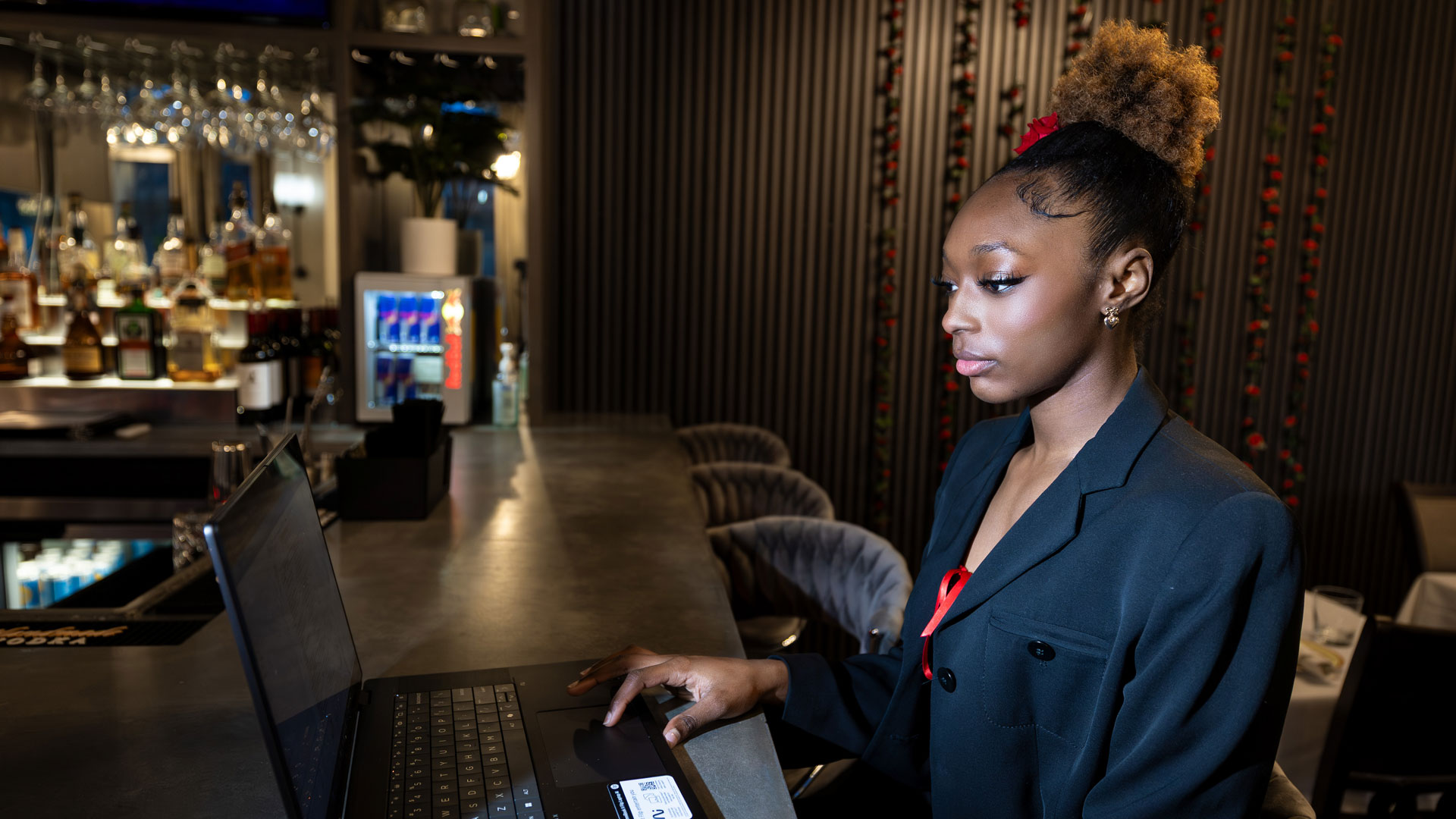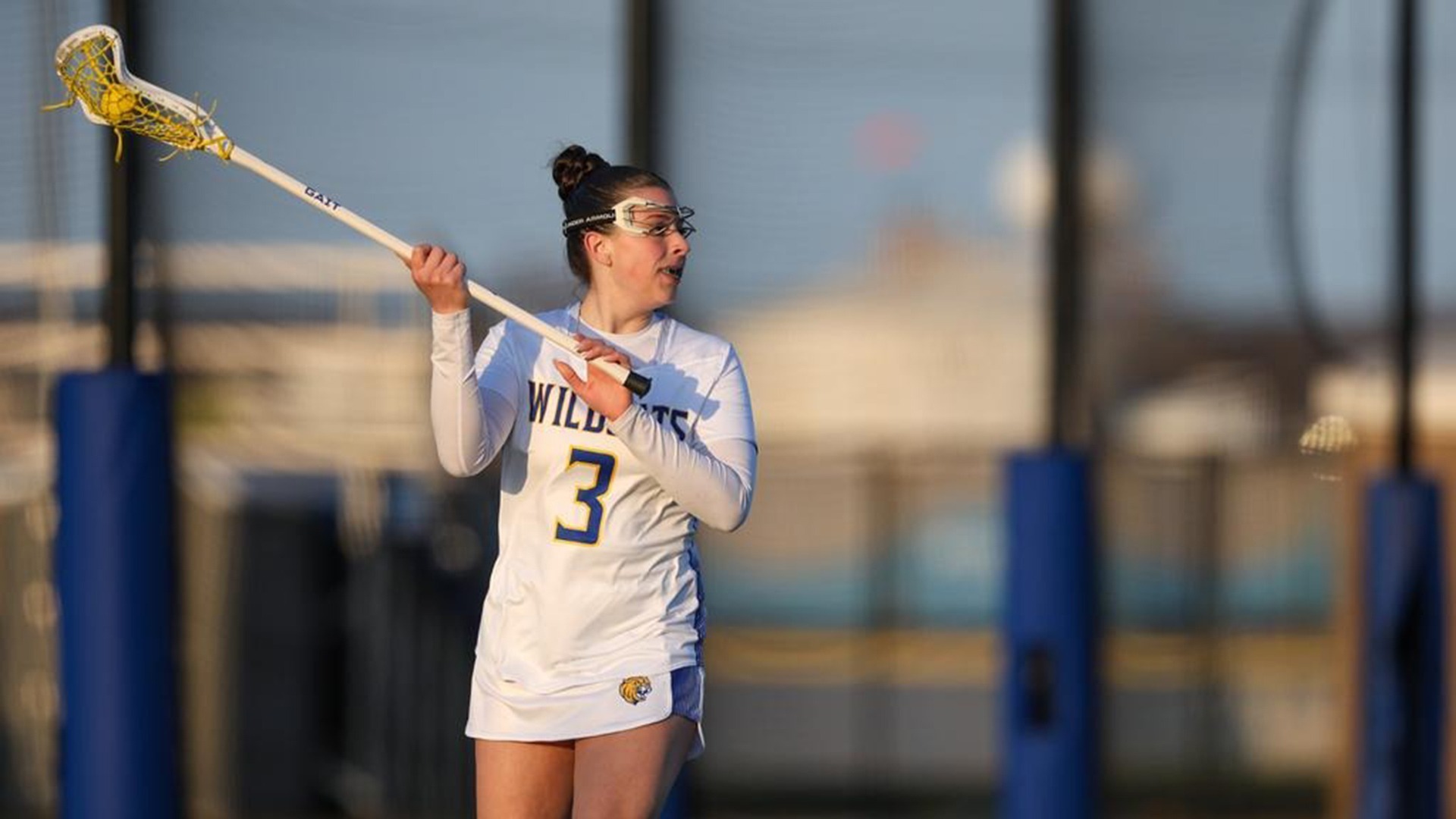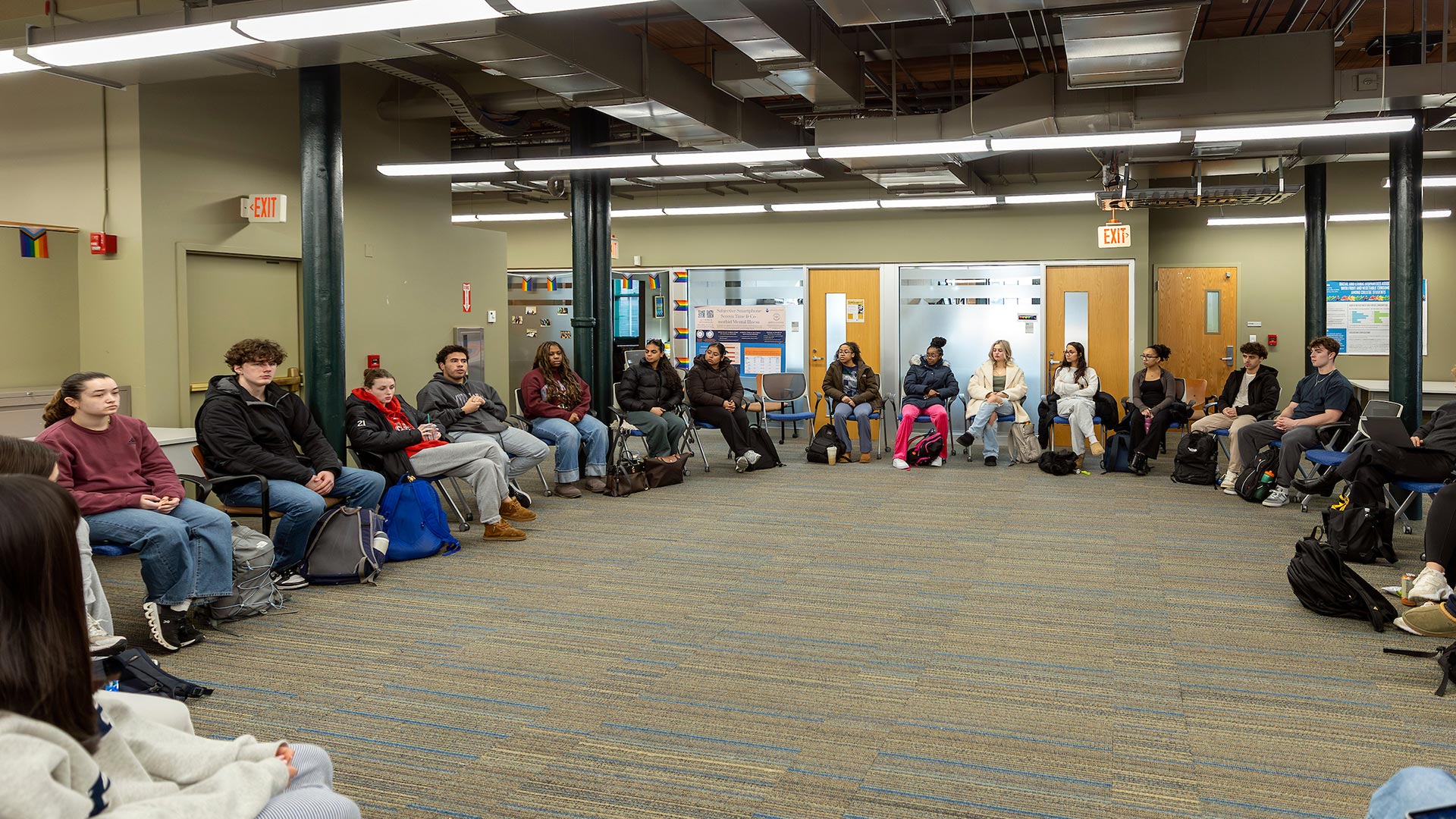7 Unbelievable JWU Charlotte Spaces
College is a time of new experiences: No matter which degree program you pursue, you’re likely looking for a university that offers top-notch classrooms that allow you to dive into your field of study, as well as places that you can relax and connect with your classmates and friends.
Johnson & Wales delivers it all, and students have two distinct campuses in Providence, Rhode Island and Charlotte, North Carolina to experience the best the university has to offer. So, whether you’re at the barn riding horses or directing a short film in the media lab at the flagship Providence Campus or at one of the amazing spots below in Charlotte, there’s no better way to explore your passions than at JWU.
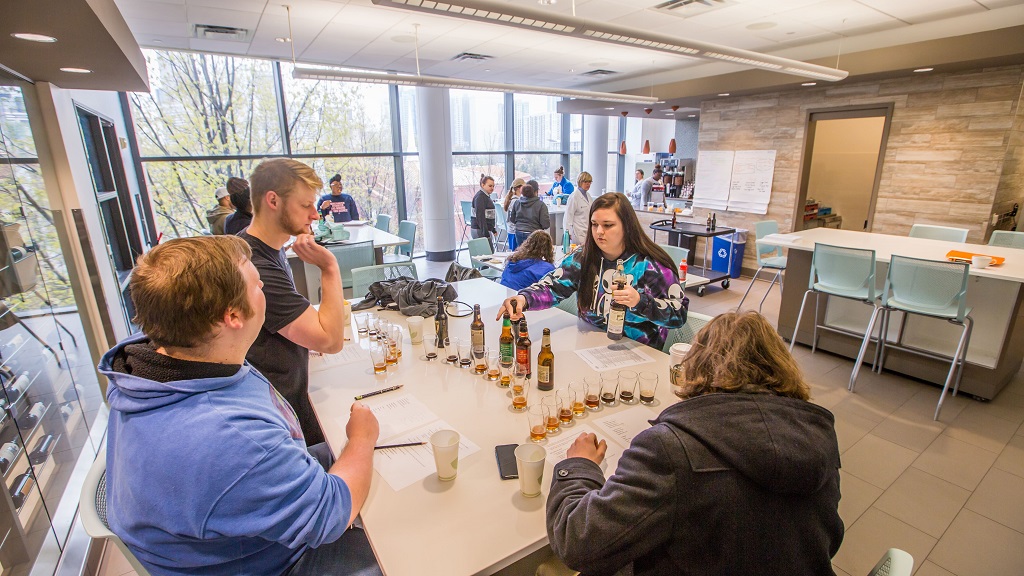
Beverage Lab
If you’re searching for one of the best views of Charlotte, look no further. The floor-to-ceiling glass windows in the fourth floor Beverage Lab showcase the city’s skyline, and an impressive wine cellar frames the space completing the picture.
Wine tasting is an experience for the senses, after all. Taste and smell are obvious, but sight also counts in developing a professional palate. Here students, glasses in hand, perch in the ergonomically designed chairs at five modern white countertop tables. This vantage point allows them to study the full-color variances of the wine—key to a more accurate analysis.
There is also a barista area where the students prepare cappuccino, espresso, macchiato and many other types of hot beverages. These can be served in a similar setup to a coffee shop, allowing the students to practice their production and culinary skills.
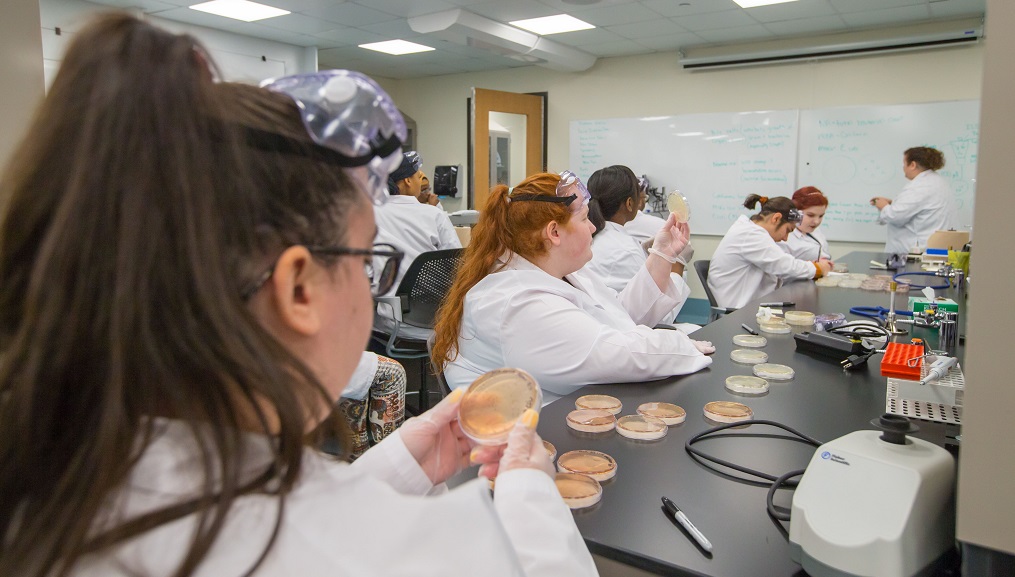
Applied Food Science Labs
Wander to the third or fifth floors of the Academic Center, and you’ll find students pouring over periodic tables, Petri dishes, and pipets. It’s here that Intro to General & Organic Chemistry, Introduction to Microbiology, and Principles of Food Microbiology, Food Chemistry and Fermentation Science are learned.
It’s also where you’ll find students enrolled in the Applied Food Science bachelor’s degree. These students study the nature of foods, the principles underlying food processing and the development and improvement of foods for the consuming public. State-of-the-art equipment fills the space—water activity meters, texture and viscosity analyzers, pH meters, and a rotary evaporator, to name a few—giving students hands-on experience with what they may use in the field.
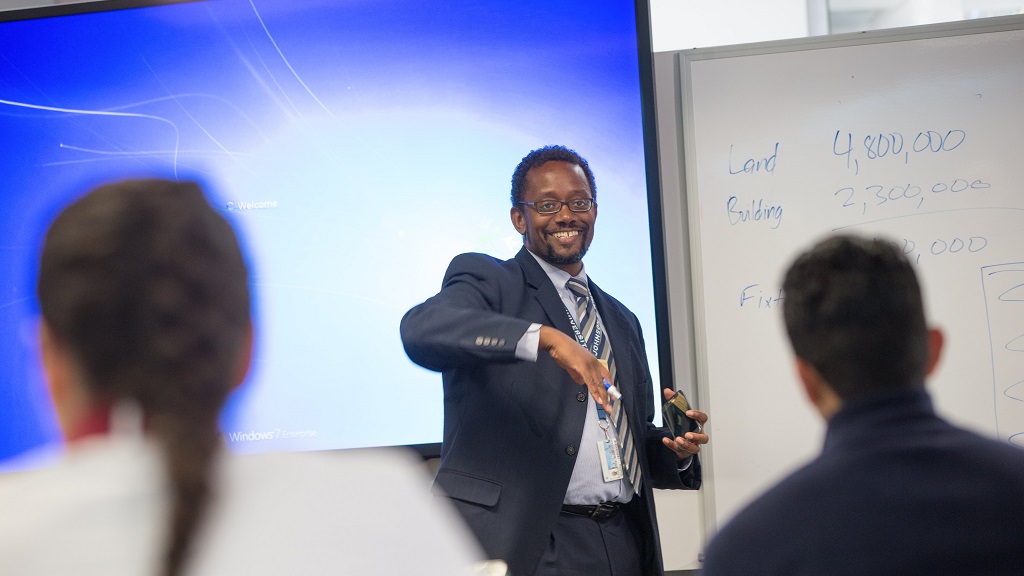
Innovation & Entrepreneur Center
Don’t mistake the Innovation & Entrepreneur Center, tucked behind The Village Bookstore, as just another classroom. The lab sparks entrepreneurship and serves as a venue for entrepreneurial courses, experiential learning opportunities, speaking engagements and other start-up events. Assistant Professor James Woods said, "The Center provides a hub for collaboration and shared learning between students, faculty and staff, and the community with the goal of advancing entrepreneurship in our region."
Here, JWU Charlotte students regularly hear from outside speakers, including angel investors, experienced start-up founders, successful alumni business owners, lawyers with expertise in start-up formation, and even a former Shark Tank contestant.
Outside of the amazing experiential education opportunities, students use this space to work on their Minimum Viable Product, target market analysis, competitor assessments, and business plans, and to practice their business pitches for investors.
Wildcat Center
This 33,000 square foot facility houses athletics, event space for clubs/organizations and student events, exercise rooms, a fitness center, gymnasium, locker rooms, and the Wildcat Den. Community is a main tenet of the Wildcat Way, and here students gather to work out and cheer on JWU Charlotte athletic teams. In the Wildcat Den, students plug into computer stations or use the lounge space for student events and meetings.
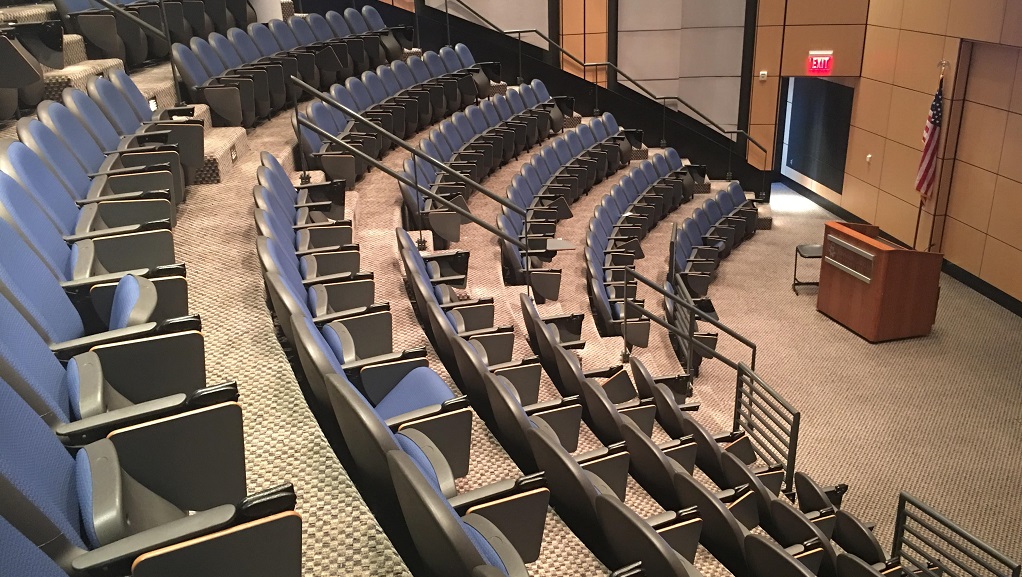
Hance/University Events Center
You never know what you’ll see in James H. Hance, Jr. Auditorium (Hance Auditorium). Located on the first floor of the Academic Center, students gather for presentations, guest speakers and food demonstrations. Culinary demos, in particular, benefit from the dynamic space, as overhead cameras and a projection screen capture all the action.
The University Events Center (UEC) is also located on the first floor of the Academic Center and offers panoramic views of the Gateway Village community.
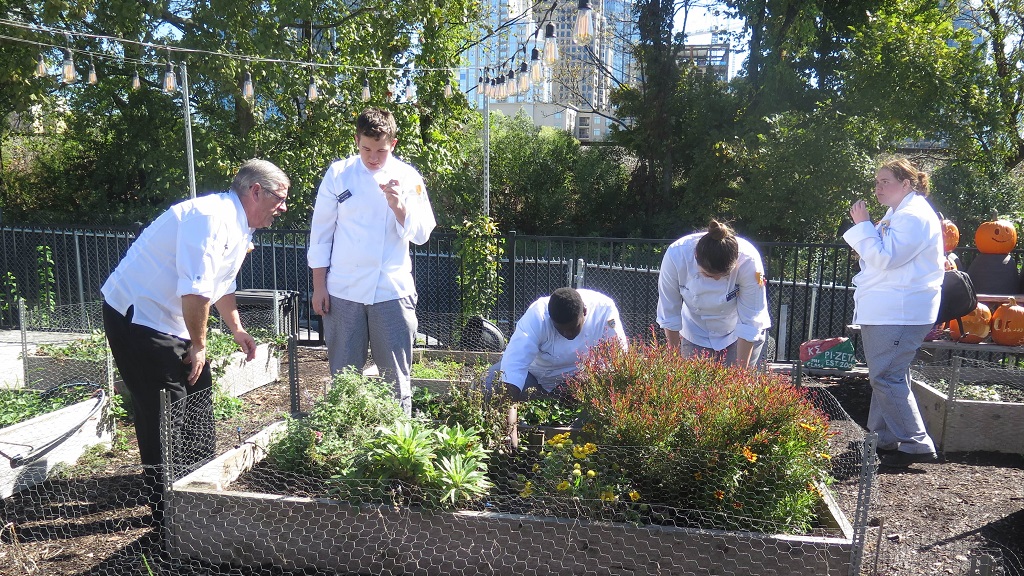
The COOP
Teaching and learning have moved from the confines of the classroom into the real world. The COOP, an urban garden and classroom, focuses on the many aspects of horticulture from seed to harvest and more. Students participate in caring for fruits and vegetables throughout the different growing seasons, as well as connect with peers, faculty, and staff. They also learn the nuances of sustainability, nutrition, gardening, and upkeep of the grounds.
The garden, located near the residence halls, grows everything from cabbage, zucchini, and Brussel sprouts to cantaloupes, apples, pumpkins and a variety of fresh herbs. Jerry Lanuzza, dean of culinary operations, says, “In addition to just learning about gardening or the freshness of just-picked fruits and vegetables, students can also expect to learn about topics that include sustainability in an urban landscape, nutritional aspects of a more plant-centric diet, environmental science and community relationships.
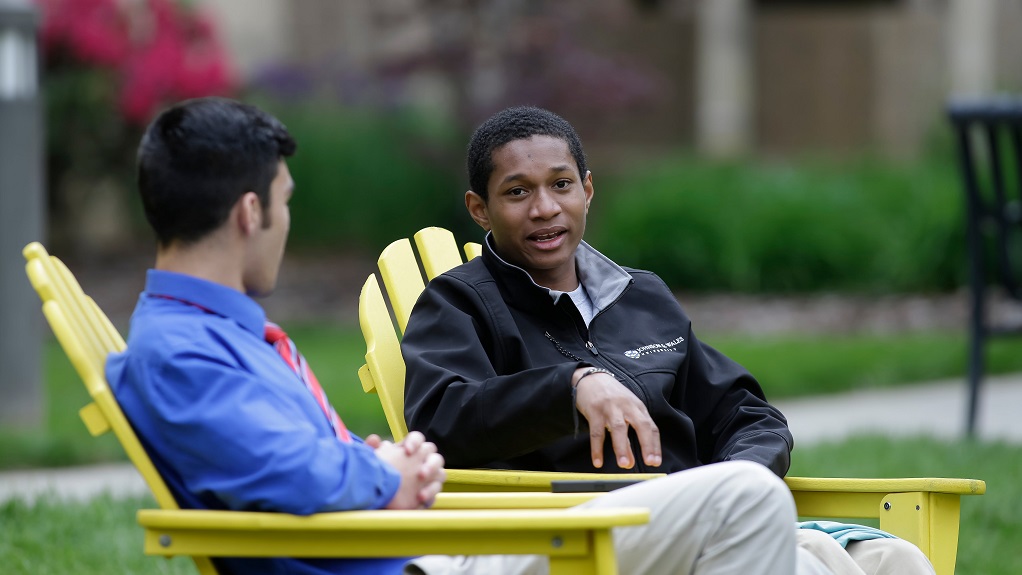
Academic Center Courtyard (ACC)
The courtyard, located in the center of campus, is a large tree-lined grass courtyard. Students can lounge, study in groups, or eat lunch outside in colorful Adirondack chairs or other seating that is available along the brick walkway that surrounds the courtyard. Clubs & organizations and other groups host student events in this area. During beautiful Carolina spring days, the ACC is a wonderful space to decompress, get some fresh air and hang out with fellow Wildcats.
